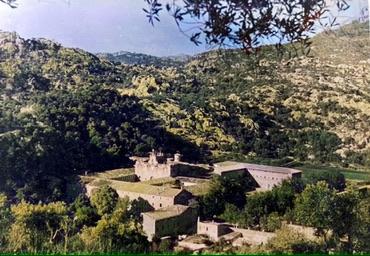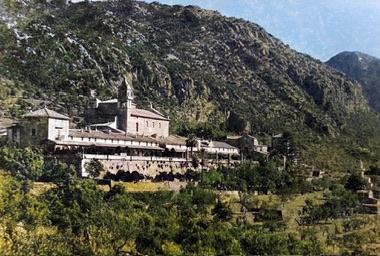What historical events led to the founding of La Cartoixa monastery around 1399?
Similar Topics
la cartoixa monastery
founding 1399
medieval spain
reconquista
carthusian order
noble patronage
kingdom of aragon
religious reform
The founding of La Cartoixa monastery around 1399 occurred during a period marked by both religious fervor and political developments in medieval Spain. At this time, the Iberian Peninsula was characterized by a complex patchwork of Christian kingdoms and Muslim territories. The gradual Reconquista, a series of campaigns by Christian states to reclaim land from Muslim rule, instilled a strong sense of religious identity and the desire to bolster Christian presence through monastic establishments. The rise of monasticism, particularly the Carthusian order known for its austerity and contemplative lifestyle, reflected the broader European trend of spiritual renewal and reform within the Church.
Another significant factor influencing the foundation of La Cartoixa was the patronage of local nobility and monarchs who sought to assert their authority and express piety through the endowment of religious institutions. Around the late 14th century, powerful regional figures recognized the strategic and cultural value of monasteries, not only as centers of worship but also as hubs of learning, agriculture, and art. The Carthusians, renowned for their strict adherence to solitude and prayer, were an attractive choice for patrons aiming to promote spiritual discipline and consolidate Christian influence. The establishment of La Cartoixa offered not only a sanctuary for monastic devotion but also contributed to the socio-economic development of the surrounding area.
The political climate of the Kingdom of Aragon, under which the region fell, also played a crucial role. The Crown of Aragon was expanding its territories and consolidating power during this era, encouraging the construction of religious sites as symbols of stability and faith. Furthermore, the late 14th century was a time of turmoil, with plagues and internal conflicts, prompting communities to seek solace and protection within spiritual institutions. Monasteries like La Cartoixa became places where monastic discipline could thrive, offering a counterpoint to the uncertainties of the outside world, and providing a stronghold of cultural and religious continuity.
In summary, the founding of La Cartoixa around 1399 was shaped by the intersecting forces of religious reform, noble patronage, and political consolidation during the late medieval period. Its establishment was a reflection of the era’s spiritual aspirations and regional dynamics, creating a lasting legacy within the historical and cultural landscape of Spain.
Another significant factor influencing the foundation of La Cartoixa was the patronage of local nobility and monarchs who sought to assert their authority and express piety through the endowment of religious institutions. Around the late 14th century, powerful regional figures recognized the strategic and cultural value of monasteries, not only as centers of worship but also as hubs of learning, agriculture, and art. The Carthusians, renowned for their strict adherence to solitude and prayer, were an attractive choice for patrons aiming to promote spiritual discipline and consolidate Christian influence. The establishment of La Cartoixa offered not only a sanctuary for monastic devotion but also contributed to the socio-economic development of the surrounding area.
The political climate of the Kingdom of Aragon, under which the region fell, also played a crucial role. The Crown of Aragon was expanding its territories and consolidating power during this era, encouraging the construction of religious sites as symbols of stability and faith. Furthermore, the late 14th century was a time of turmoil, with plagues and internal conflicts, prompting communities to seek solace and protection within spiritual institutions. Monasteries like La Cartoixa became places where monastic discipline could thrive, offering a counterpoint to the uncertainties of the outside world, and providing a stronghold of cultural and religious continuity.
In summary, the founding of La Cartoixa around 1399 was shaped by the intersecting forces of religious reform, noble patronage, and political consolidation during the late medieval period. Its establishment was a reflection of the era’s spiritual aspirations and regional dynamics, creating a lasting legacy within the historical and cultural landscape of Spain.
🧩 Related Questions
Related Question
Are there any smaller, lesser-known music festivals on Mallorca worth visiting?
Related Question
Which Mallorca organizations offer educational programs specifically about sustainable beekeeping practices?
Related Question
Are there any family-friendly performing arts events suitable for children in Mallorca?

